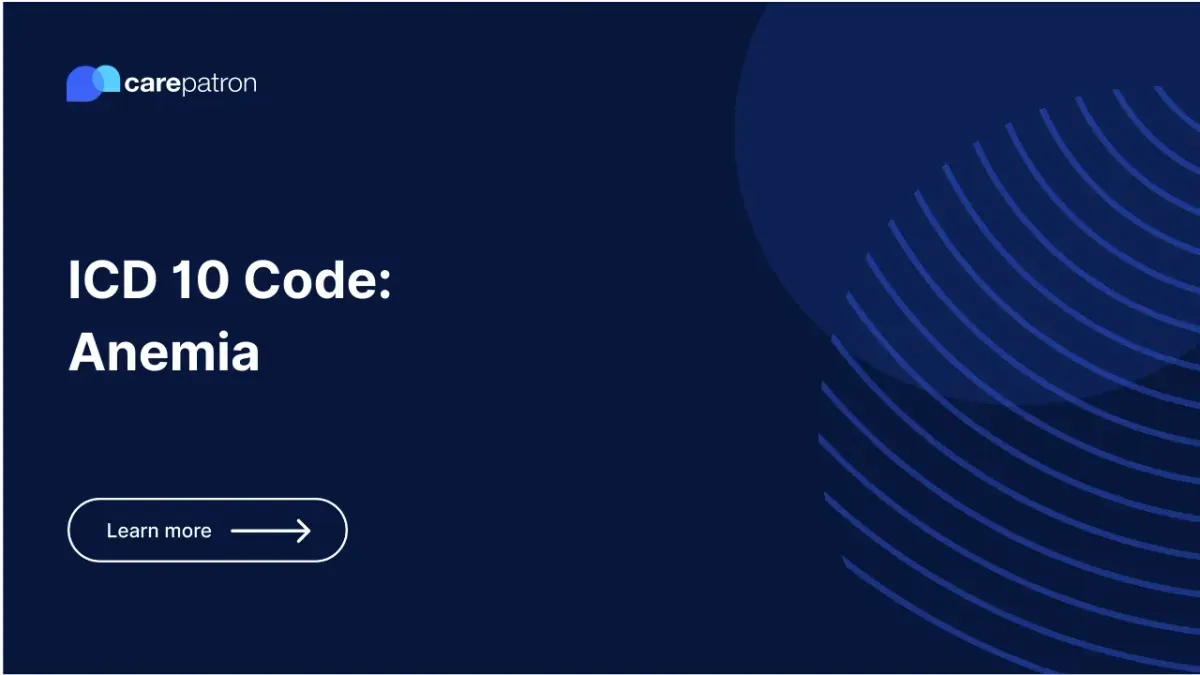
Anemia ICD-10-CM Codes
Get the latest ICD-10-CM codes for Anemia in 2023. Learn about common codes, billability, clinical information, synonymous terms, and more!
Use Code
Commonly asked questions
The most common types of anemia are iron-deficiency anemia, vitamin deficiency anemia, anemia of chronic disease, aplastic anemia, and hemolytic anemia.
Food rich in iron, folic acid, and vitamin B12 can help combat anemia. These include meats, seafood, green leafy vegetables, whole grains, and fortified cereals.
Yes, severe or long-term anemia can lead to serious complications, including heart problems such as an enlarged heart or heart failure, due to the heart needing to pump more blood to compensate for the lack of oxygen in the blood.
EHR and practice management software
Get started for free
*No credit card required
Free
$0/usd
Unlimited clients
Telehealth
1GB of storage
Client portal text
Automated billing and online payments
